34:01.32S 18:26.22E 1st May 2012 Constantia Friends and Wine It’s always so nice to enjoy and area where friends live, to be able to appreciate the country more, and so here we were able to meet up with friends originally made in Phuket, Michel and Annick, who are originally from Belgium. They bought their house here in Constantia 10 years ago, but rented elsewhere whilst it was rented out, as the BBC, whom Michel works for as a business developer, wanted him to go to India and Thailand. 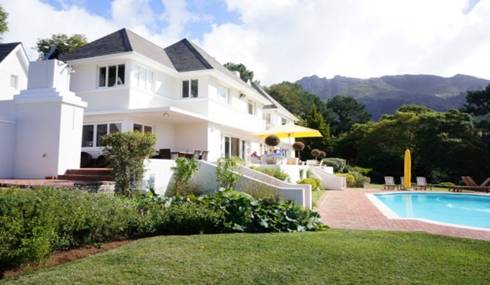
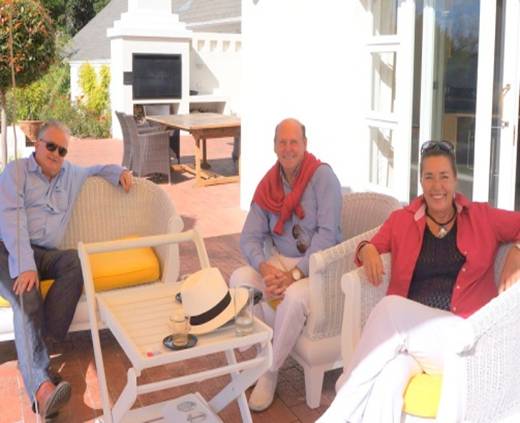
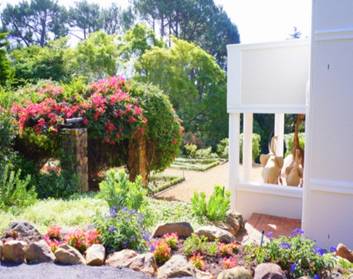
This area was settled in 1685, and is the birthplace of South African wines 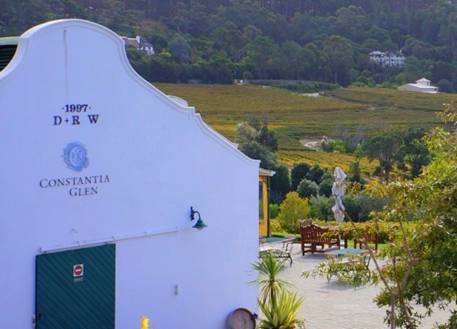
Constantia Glen Vineyard, is so beautifully placed, overlooking the whole valley 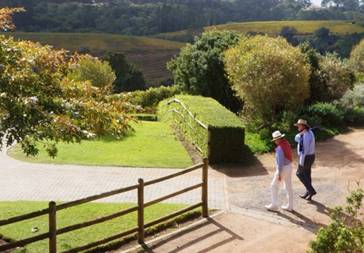
Annick also had her hat on, but I missed out taking the threesome! 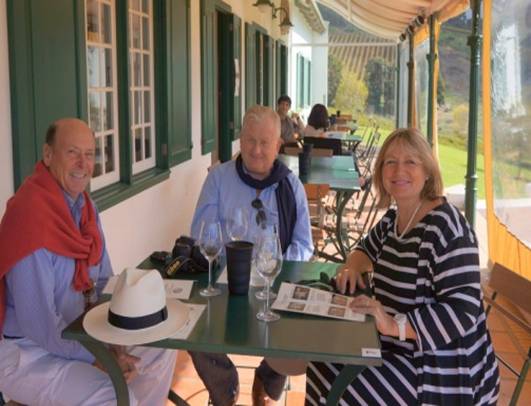
Michel and Annick enjoying the wine tasting, and pointing out where we should visit next. We heard that the owners bought the whole estate just after the Sharpville Riots for just 10,000 Euros! 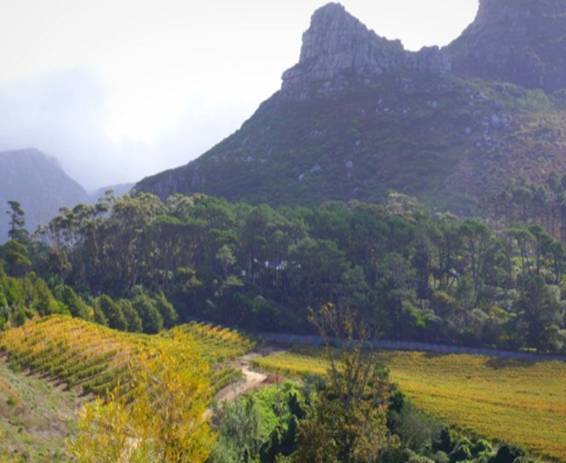
Autumn in the Vineyards, the harvest is in, the leaves are going golden Small parcels of Cabernet Franc, Malbec and Petit Verdot with the Sauvignon Blanc and Cabernet on the hillside 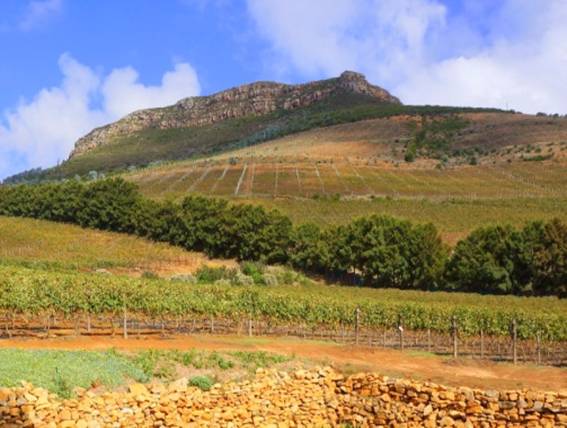
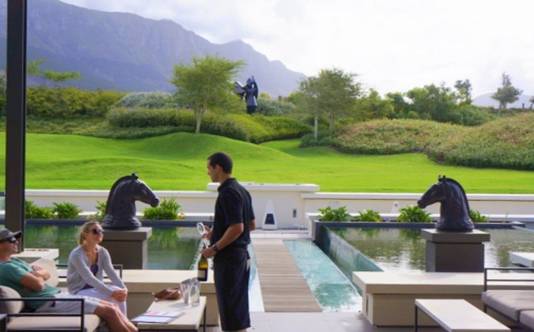
The very glitzy and modern Steenberg Estate Vineyard has a Hotel, Golf Course and this superlative restaurant, where Michel and Annick very kindly brought us lunch 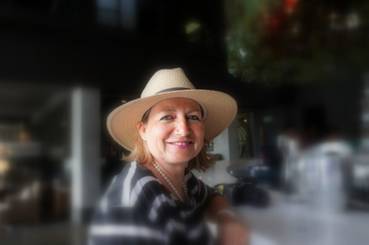
Here’s Annick in her Panama hat 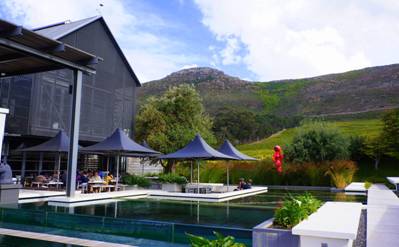
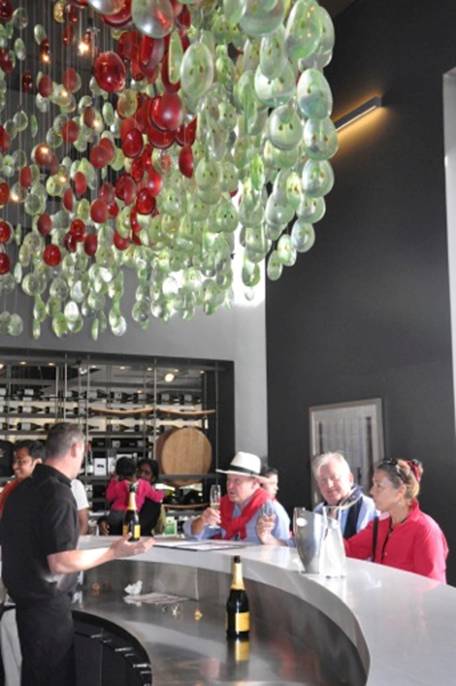
More fun wine tasting 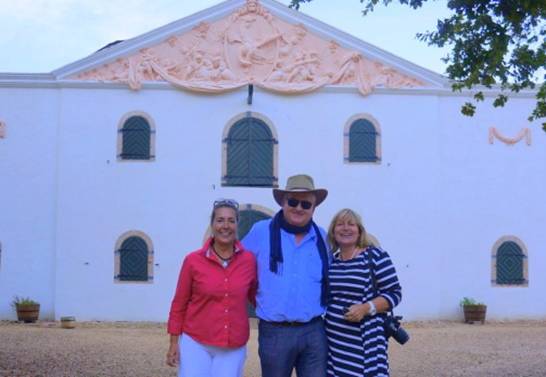
This facade, commissioned by Hendrik Cloete and built in 1791 is attributed to Louis Thibault. The Rococo pediment was sclupted by Anton Anreith This is Groot Constantia Estate. The newly appointed Commander of the Cape Simon van der Stel named this farm Constantia, it was the first piece of land granted to him in 1685. It probably honours the daughter of Rijckloff van Goesn, who supported the governor’s land application. After his death in 1712, the farm was subdivided into three. 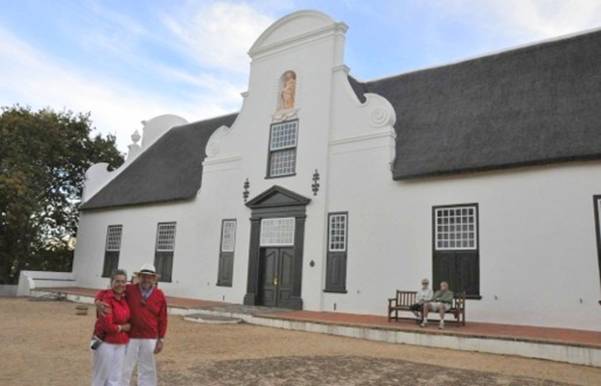
The very tall gable of the monor house was added between 1799 and 1803. The sculpted figure of Abundance that decorates it lofty niche is the work of the scuptor Anton Anreith also. 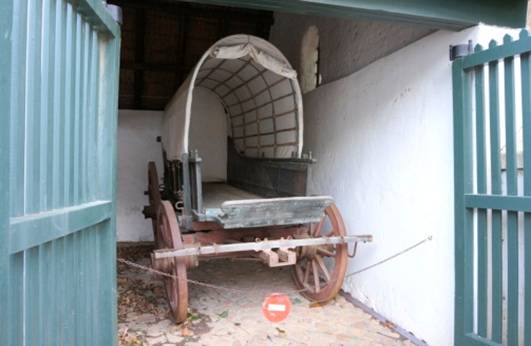
This is an original wagon used by the ‘Boers’ Dutch farmers to travel throughout South Africa looking for the best farming areas which became the present day Free State, in 1836 to escape the British taking over the ruling of Cape Town, when they declared the slaves be freed. 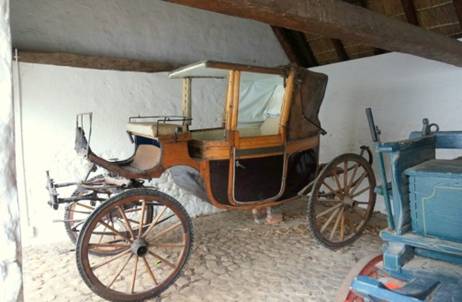
This beautiful carriage was used as the ‘taxi’ to carry people around in Cape Town, at the same time as trams were used as mass transport in the early 1900’s 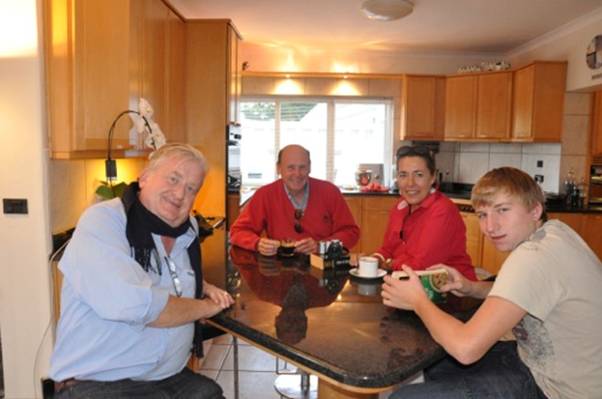
Phillip,on the left is Michel and Annick’s son, who is finishing off his studies in Cape Town. Both his sisters were educated here, they have since both graduated abroad, although one of them is still studying for her Masters at Cape Town Unversity doing a Masters in Marine Biology | 
















